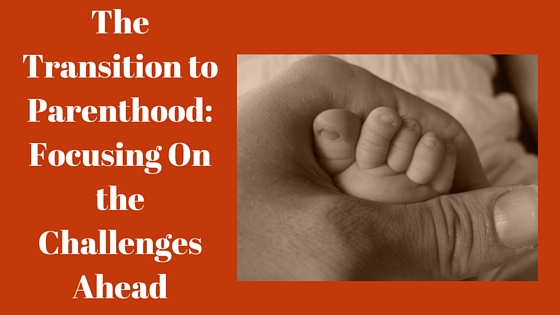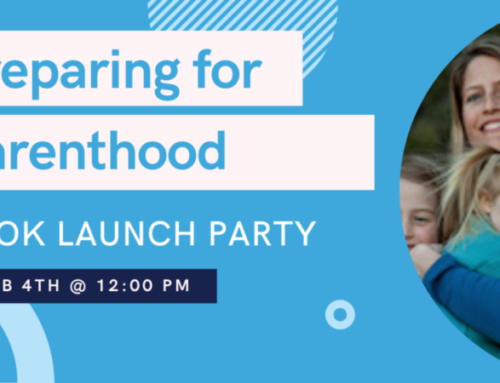“Preparing for the psychological demands of parenting during the early days of life is one of the most important tasks of the expectant mother and her partner.” Ann Corwin, Ph.D., M.Ed., LCCE: Integrating Preparation for Parenting in to Childbirth Education, Journal of Perinatal Education Winter, 1999.
The transition to parenthood can be a beautiful thing. Perhaps one of the most beautiful things in the world.
If you’re prepared and realistic, the joys and challenges of taking on this responsibility can transform your life in the best possible ways.
If you’re unprepared, and sometimes even if you feel like you have prepared quite well, you may find you’re too overwhelmed by the tough moments to appreciate the beauty of parenthood or create the warm, loving home you want for your child.
Information and knowledge are key.
Prepare yourself to transition to parenthood in the smoothest way possible.
Prepare Physically
Before the baby arrives
Avoid extra stress and strain. Nourishing foods, regular exercise, and getting as much rest as possible should be priorities.
Regular prenatal visits are also important. Do your best to educate yourself regarding maternity services, birthing options, breastfeeding, and how to prepare your body for each.
After baby arrives
Take naps when your baby sleeps. Save the housework, errands, and visits with well-wishers for later. Rest is vital for both mother and baby during the postpartum period.
Also, ensure your home is kept stocked with easy to prepare, nutritious food for you that supports the demands of recovering from childbirth, and of breastfeeding (if you are breastfeeding), and that helps keep your energy levels up. Even better, enlist your community to bring a hot meal each day, leaving less food preparation for you.
Prepare Mentally and Emotionally
Before the baby arrives
Spend a good amount of time researching and considering the basic aspects of newborn care and determine your personal preferences. Make a note of what you prefer for any who will care for your child after birth. Include preferences regarding feeding, bathing, medication, medical tests, circumcision, etc.
This is also the time to unpack and work through any negative ideas and fear concerning your pregnancy, birth, and parenting ideas. Spend time with a skilled therapist if you feel emotionally stuck and need support working through some challenges that are arising.
Consider joining a prenatal group that works for you, be it focused on social support, relaxation or yoga, birth preparation, or parenting preparation.
Watch for the signs of prenatal anxiety and depression. These have actually been found to be more common than postpartum anxiety and depression.
After baby arrives
Concentrate on calm, relaxation, and rest during the postpartum period. The more peaceful and focused you are, the more patient, attentive, and emotionally aware you will be. This fosters better problem-solving and healthier parent-child connection.
Also, don’t feel guilty about factoring in a bit of self indulgence. A bubble bath, a walk with a friend, or time spent journaling can be a much needed refreshment that makes you a better parent.
Parenting a newborn is no easy feat. It’s natural to reach a point of overwhelm. Keep a list of names and numbers nearby in case you’re out of ideas or are unable to cope.
Consider joining a group for first-time parents that focuses on needs you may have.
Be sure you know the signs of postpartum anxiety and depression, and where to seek help if these arise.
Prepare Relationally
Before the baby arrives
If you have a partner, talk to him or her regarding both of your ideas about parenting and parental roles. Encourage each other to learn as much as possible and support each other’s interest in becoming strong parents individually and as a unit. If there is tension, resentment, or distance in your relationship, immediately take steps to reconnect and improve your communication, or seek couples counseling or counseling for expectant parents, if you feel it’s necessary.
If you are entering parenthood without a partner, gather support from your community. Take the time to be sure you have the needed support from friends, extended family, and others so that parenting alone doesn’t become isolating.
After the baby arrives
Take measures to ensure you and your partner prioritize your connection. Take time to check in with each other and share honestly your joys and frustrations. Give each other some grace and encouragement as you both manage sleep deprivation and adjust to the demands of parenting a newborn. Consider calling on friends or family who might give you a break to spend a few hours alone together.
Call on your community to help. Everyone wants to be able to support a new parent and baby. Having friends deliver food, walk the dog for you, or be an on-call support in the middle of the night when you feel like you are the only person awake in the world, can be a godsend as you transition into parenthood. Parent groups can also provide solid support. They’re a great opportunity to get parenting advice and develop a general sense of what the “new normal” should look like in your household.







Leave A Comment